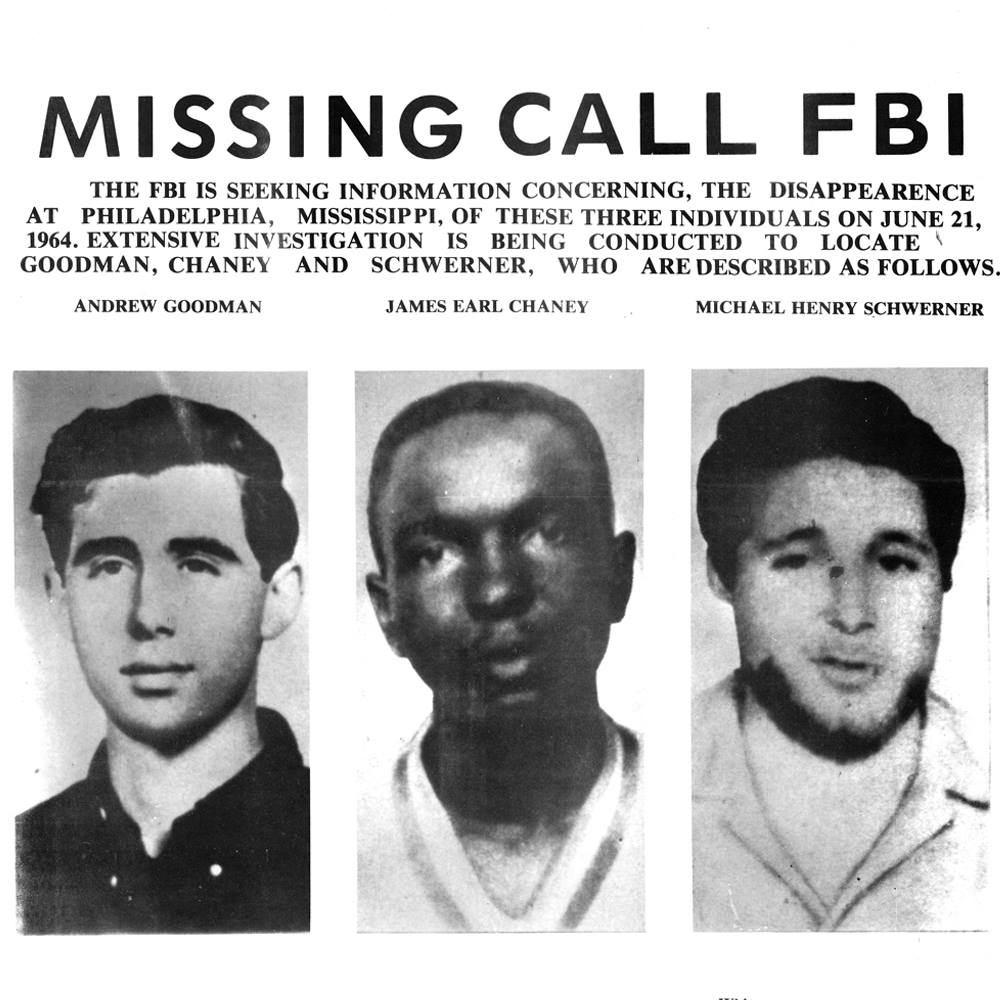Summary | Excerpt | Reviews | Beyond the Book | Read-Alikes | Genres & Themes | Author Bio

A Novel
by Nyani NkrumahThis article relates to Wade in the Water
 In Nyani Nkrumah's novel Wade in the Water, set in the early 1980s, one character's father was a member of the Ku Klux Klan who participated in the (real-life) murders of James Chaney, Andrew Goodman and Michael Schwerner on June 21, 1964.
In Nyani Nkrumah's novel Wade in the Water, set in the early 1980s, one character's father was a member of the Ku Klux Klan who participated in the (real-life) murders of James Chaney, Andrew Goodman and Michael Schwerner on June 21, 1964.
The 15th Amendment, passed in 1870, purportedly guaranteed Blacks the right to vote. The amendment, however, also gave states the ability to determine voter eligibility, and state governments in the Deep South passed laws that disenfranchised its Black residents, such as adding literacy requirements. In addition, acts of violence and intimidation by whites—particularly members of the Ku Klux Klan—physically kept Blacks from registering and casting their ballots. The campaign against Black suffrage was so successful in Mississippi that in 1962 less than 7% of the state's eligible Blacks were registered to vote.
In 1964, several civil rights organizations banded together under the auspices of the Council of Federated Organizations (COFO) to sponsor a registration drive in Mississippi, a movement that became known as the Freedom Summer Project. An estimated 1,000 primarily white out-of-state volunteers joined thousands of local Black community members in Mississippi to stage protests demanding rights for Blacks citizens. They'd been warned that they should expect to be arrested, but they were in no way prepared for the violence that met them. According to the National Archives, "It is believed that 1,062 people were arrested, 80 Freedom Summer workers were beaten, 37 churches were bombed or burned, 30 Black homes or businesses were bombed or burned, four civil rights workers were killed, and at least three Mississippi African Americans were murdered because of their involvement in this movement. Among the most notable victims were James Chaney of Meridian [Mississippi], and Andrew Goodman and Michael Schwerner, both from New York."
Chaney began his civil rights work in 1962, participating in non-violent protests in Mississippi including the Freedom Ride, a protest whereby Black riders intentionally sat in whites-only seats on interstate buses, daring arrest. He joined the Congress for Racial Equity (CORE) in 1963, where he met Michael Schwerner, CORE's local leader. Schwerner, for his part, was a New Yorker who wanted to work with CORE in the south to "help prevent the spread of hate that resulted in the Holocaust," which had claimed the lives of several of his family members. Together, they approached members of Black area churches, including the Mt. Zion Baptist Church in Philadelphia, MS, to plan COFO projects.
The Ku Klux Klan was aware of the pair's activities, even going so far as to place Schwerner on a hit list. While the pair were in Ohio training other Freedom Summer volunteers, the Klan, looking for them, hit Mt. Zion on June 16, 1964, beating up its members and later burning the church to the ground. Joined by a new volunteer, college student Andrew Goodman, Chaney and Schwerner returned to Mississippi on June 21 to meet with members of the congregation. As they drove back to their base in Meridian, they were stopped and arrested, allegedly for speeding (Chaney was driving, but the other two men were held on suspicion of burning the church). They were incarcerated in the Philadelphia jail at about 4 p.m. and told that they'd need to wait until the Justice of the Peace was available to process the fines. They were denied the ability to make a phone call.
A sheriff's deputy returned after 10 p.m. to collect the fine (no Justice of the Peace in evidence) and released the three, telling them to get out of the county. They were followed as they drove away and a group of white men (including some law enforcement officers) forced them to stop. They were subsequently driven to a remote area. Chaney was beaten with chains, castrated and then shot while the other two men were forced to watch. Schwerner was shot in the heart as he cradled Chaney's body, and Goodman was shot in the back as he attempted to flee.
Word quickly spread about the missing men, and President Lydon Johnson sent the National Guard and recruits from the Meridian Naval Base to look for them. The FBI was also called on to investigate the disappearances and discovered their burned-out car on June 23 (which led them to name the case, "Mississippi Burning"), but the men themselves remained unaccounted for. Acting on a tip, the three bodies were found on August 4, below an earthen dam on a local farm; a bulldozer had been used to bury them. An autopsy revealed that Goodman was likely buried alive as dirt was found in his lungs and in his grasped hands. During the search, authorities discovered a further eight bodies, all of Black men, in the surrounding woods and waters.
State and local law enforcement closed the case citing "insufficient evidence," but the FBI continued its investigation. The Justice Department ultimately brought charges against 21 men, 18 of whom were indicted in January 1965. Seven were convicted, but only of violating the men's civil rights, not of murder, and were given light sentences; none served more than six years. Fifty years later, in 2005, the case was re-opened, and one of the ringleaders, a Baptist minister named Edgar Ray Killen, was sentenced to 60 years for the killings (he died in prison in 2018, aged 92).
The murders of Chaney, Goodman and Schwerner, as well as the efforts of the Freedom Summer volunteers, played a role in galvanizing public opinion. Johnson signed the Civil Rights Act into law on July 2, 1964, with the Voting Rights Act passing a year later.
Image: FBI Missing Persons poster for James Chaney, Andrew Goodman and Michael Schwerner.
Filed under People, Eras & Events
![]() This "beyond the book article" relates to Wade in the Water. It originally ran in March 2023 and has been updated for the
January 2024 paperback edition.
Go to magazine.
This "beyond the book article" relates to Wade in the Water. It originally ran in March 2023 and has been updated for the
January 2024 paperback edition.
Go to magazine.






Your guide toexceptional books
BookBrowse seeks out and recommends the best in contemporary fiction and nonfiction—books that not only engage and entertain but also deepen our understanding of ourselves and the world around us.